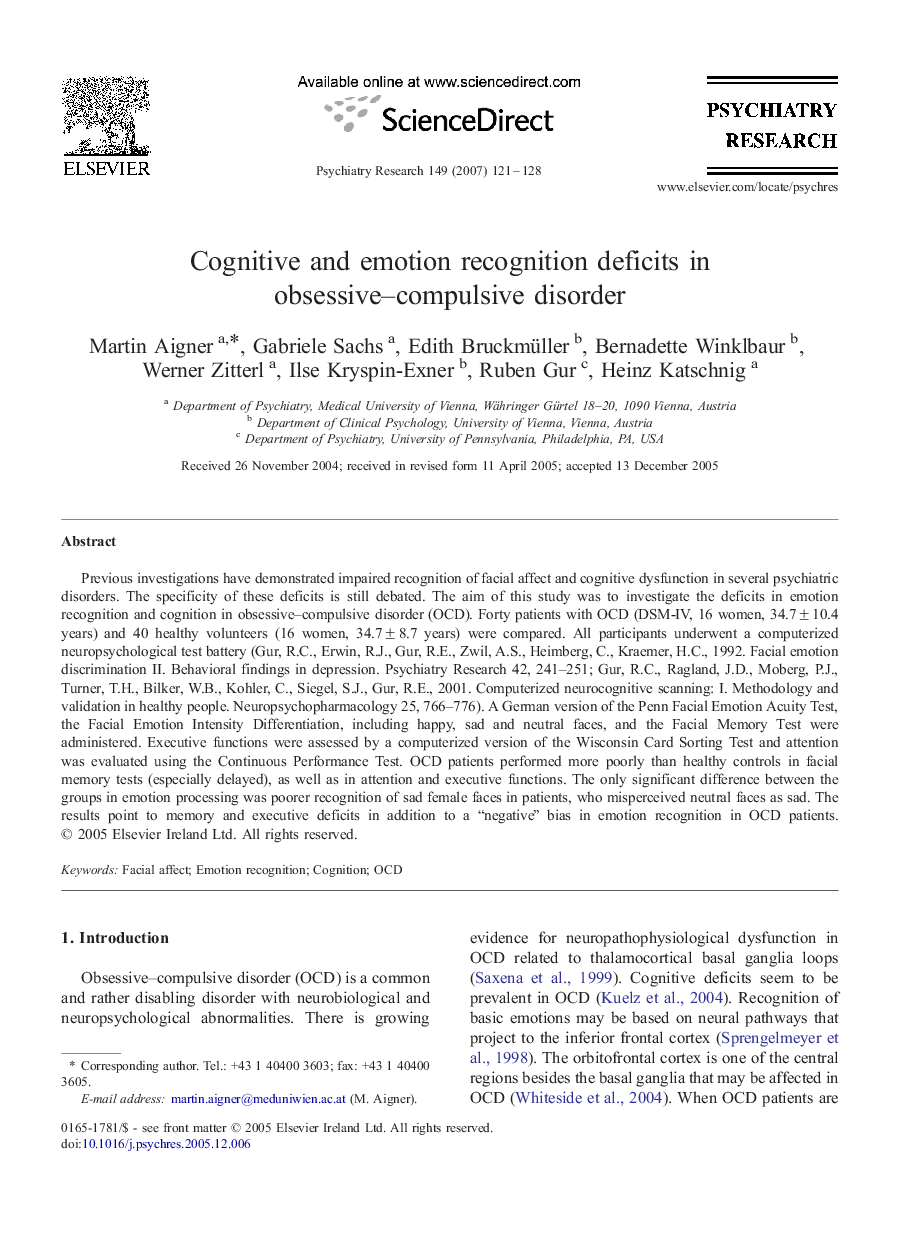| کد مقاله | کد نشریه | سال انتشار | مقاله انگلیسی | نسخه تمام متن |
|---|---|---|---|---|
| 332620 | 545738 | 2007 | 8 صفحه PDF | دانلود رایگان |

Previous investigations have demonstrated impaired recognition of facial affect and cognitive dysfunction in several psychiatric disorders. The specificity of these deficits is still debated. The aim of this study was to investigate the deficits in emotion recognition and cognition in obsessive–compulsive disorder (OCD). Forty patients with OCD (DSM-IV, 16 women, 34.7 ± 10.4 years) and 40 healthy volunteers (16 women, 34.7 ± 8.7 years) were compared. All participants underwent a computerized neuropsychological test battery (Gur, R.C., Erwin, R.J., Gur, R.E., Zwil, A.S., Heimberg, C., Kraemer, H.C., 1992. Facial emotion discrimination II. Behavioral findings in depression. Psychiatry Research 42, 241–251; Gur, R.C., Ragland, J.D., Moberg, P.J., Turner, T.H., Bilker, W.B., Kohler, C., Siegel, S.J., Gur, R.E., 2001. Computerized neurocognitive scanning: I. Methodology and validation in healthy people. Neuropsychopharmacology 25, 766–776). A German version of the Penn Facial Emotion Acuity Test, the Facial Emotion Intensity Differentiation, including happy, sad and neutral faces, and the Facial Memory Test were administered. Executive functions were assessed by a computerized version of the Wisconsin Card Sorting Test and attention was evaluated using the Continuous Performance Test. OCD patients performed more poorly than healthy controls in facial memory tests (especially delayed), as well as in attention and executive functions. The only significant difference between the groups in emotion processing was poorer recognition of sad female faces in patients, who misperceived neutral faces as sad. The results point to memory and executive deficits in addition to a “negative” bias in emotion recognition in OCD patients.
Journal: Psychiatry Research - Volume 149, Issues 1–3, 15 January 2007, Pages 121–128